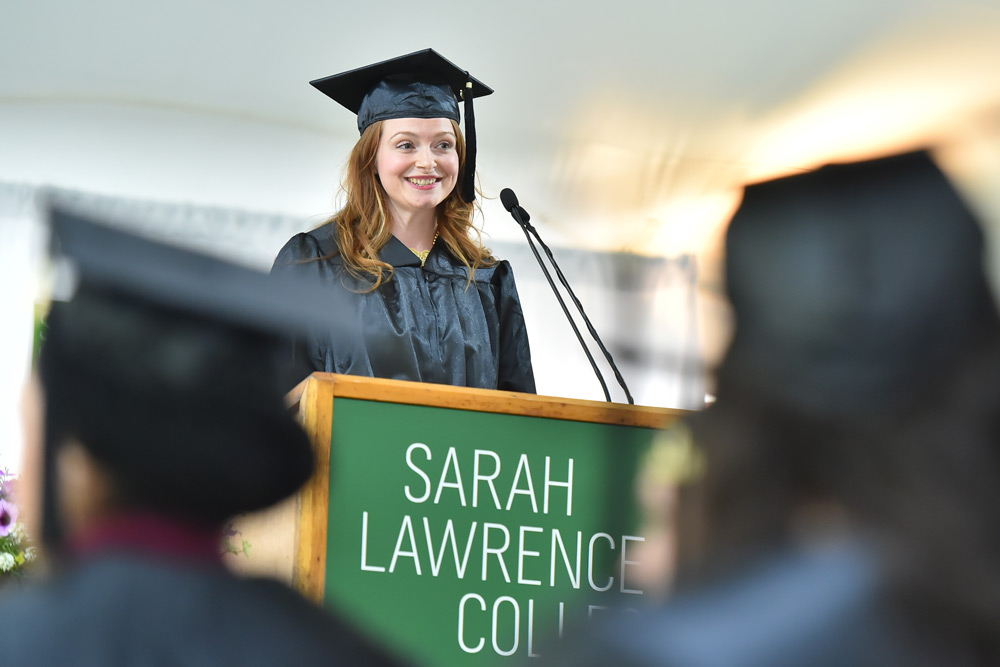When I think about life after Sarah Lawrence, there’s a list of things I won’t miss: The tragic beeps from an out-of-order photocopier, and the Cheryl Strayed-like trek from the Kober parking lot to just about anywhere on campus. The coffee. Really, full-stop: the coffee.
But the list of what I will miss is much longer. There’s the weird Caesar salad pizza Paige convinced us to love as much she does. And I can’t not mention this particularly cheerful student librarian with green hair—although it has since turned blue—with an astonishing ability to find lost books. In fact, I could devote this entire speech to the library, whose small size I first scoffed at, but whose understated charms have since won me over.
If this were a workshop, here is where you might write “Metaphor,” in the margin.
There’s a view from the sunny, second-floor library carrels. In October, it was of turning leaves and in April, it was dogwood blossoms, and always there was a wide square of sky. Looking out that window may have been some of my most important work at Sarah Lawrence. It made me feel official. When I arrived here, part of me was broken. Life circumstance had played its hand, but another part was loose. It was a part I had successfully sublimated and to some extent ignored.
I was a writer.
I will miss that library view. It reminded me I had made a life-swerve that put the satisfaction and thrill of creative work at the center of my life. That I was surrounded by people who had the courage to make the very same commitment in their own lives, and that this was a valor that mattered deeply to this community. Collectively, we had agreed to honor the most essential part of ourselves. To be among one’s tribe, those who support and believe in what brought each of us here: It’s ineffable, luxurious, life-changing and rare.
On Admitted Students Day more than two years ago, Brian Morton mentioned one of Keats’ letters. It’s a letter about soul-making. When we write, Brian said, we are making our souls. Writing at Sarah Lawrence—and declaring that I was a writer—stitched my soul back together. It made me whole. But writers—and teachers, scholars, counselors, advocates and artists—also make the world we want to live in by imparting order, imagination, beauty, truth, and meaning to whatever experience we happen to find ourselves in. I'm certain this world will be occluded by the urgent and mundane demands of daily life: laundry, post office lines, broken grocery bags. But we made a bargain with ourselves when we came here, that there was something in each of us we could not afford to ignore, that we would honor the world of beauty and truth. And here’s the really good news: That is a world we never have to leave, and it’s one we owe it to ourselves to never have to miss.
